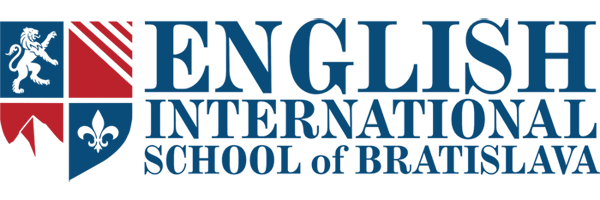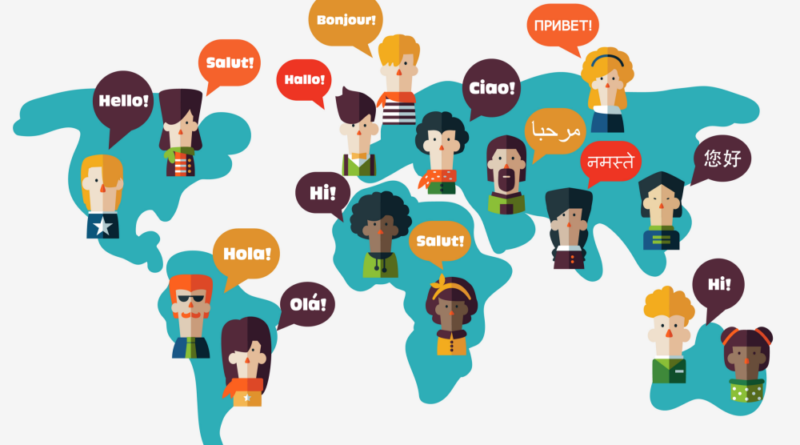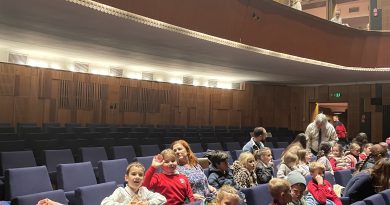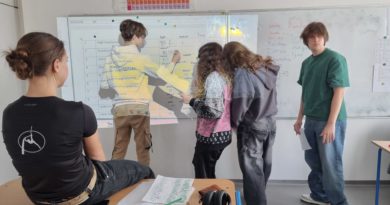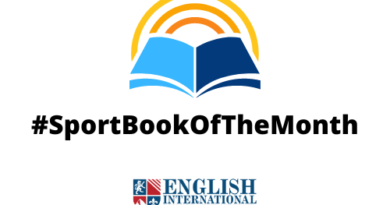Languages, a skill that matters at EISB.
At the International School of Bratislava (EISB), we firmly believe in the power and importance of mastering multiple languages from an early age. In an increasingly interconnected world, proficiency in different languages expands professional and academic opportunities (Stephany, Fabian, 2020; Williams, D.R., 2011) and offers various cognitive benefits (Mechelli et al., 2004; Bialystok & Craik, 2010), while also fostering a deeper and more respectful understanding of other cultures.
Our approach to language teaching closely aligns with the principles of the Primary Years Programme (PYP), where we value experiential and practical learning. We strive to equip our students with the necessary language skills to communicate effectively in everyday situations and in a globalized environment. We integrate language learning into meaningful and contextualized projects, believing this methodology not only makes the learning process more relevant and stimulating but also prepares our students to apply their language skills in real-world situations. For an example, please read this post where Year 2 students experienced interdisciplinary learning across different subjects taught in the school.
Upon completion of the PYP at EISB, our students will have gained proficiency in three languages: Spanish or German, English, and Slovak. This achievement is the result of a comprehensive educational approach that prioritizes linguistic development from an early age. Additionally, it prepares students for the MYP and subsequent stages of their academic and personal lives.
Furthermore, our commitment to language learning extends beyond the classroom. In addition to our regular language curriculum, we offer an Extra English program for students who may need a boost in their English proficiency. This program not only helps students improve their English skills but also enhances their performance in other subjects.
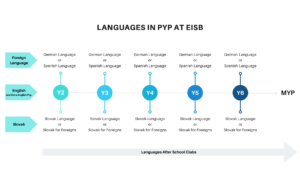
We also provide a variety of extracurricular language clubs that allow our students to further expand their linguistic proficiency and explore new languages and cultures in an informal and enjoyable environment.
At EISB, we are committed to nurturing globally competent and self-assured citizens, and we believe that mastering multiple languages is fundamental to this process. By investing in language learning from an early age and following the practical and experiential approach of the PYP, we prepare our students for success in an increasingly diverse and interconnected world.
Bibliography
Bialystok, E., & Craik, F. I. M. (2010). Cognitive and Linguistic Processing in the Bilingual Mind. Current Directions in Psychological Science, 19(1), 19-23. https://doi.org/10.1177/0963721409358571
Mechelli, A., Crinion, J., Noppeney, U., et al. (2004). Structural plasticity in the bilingual brain. Nature, 431, 757. https://doi.org/10.1038/431757a
Stephany, F. (2020, October 22). When Does it Pay Off to Learn a New Skill? Revealing the Complementary Benefit of Cross-Skilling. Retrieved from SSRN: https://ssrn.com/abstract=3717077 or http://dx.doi.org/10.2139/ssrn.3717077
Williams, D. R. (2011). Multiple language usage and earnings in Western Europe. International Journal of Manpower, 32(4), 372-393. https://doi.org/10.1108/01437721111148513
